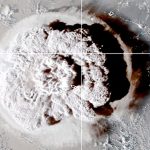At least seven people have been killed after Pakistan launched airstrikes on Iranian territory early on Thursday morning.
The target of the attack is not known but the Pakistanis called the operation “Marg Bar Sarmachar”.
In Iranian Farsi, “marg bar” means “death to” and in the local Baluch language, “sarmachar” means guerrilla and is used by the militants operating in the cross-border region between the two countries.
Pakistan’s foreign ministry described the operation as “a series of highly coordinated and specifically targeted precision military strikes”.
It said in a statement: “This morning’s action was taken in light of credible intelligence of impending large scale terrorist activities.”
The incident follows Iran’s attack on Tuesday on Pakistani soil that killed two children in the southwestern Baluchistan province.
At least seven people, including four children and three women, were killed in Thursday’s raids by Pakistan, Ali Reza Marhamati, a deputy governor of Iran’s Sistan and Baluchistan province, told Iranian state television.
Pakistan says ‘innocent children’ killed in ‘completely unacceptable’ Iranian strikes on its territory
Is Iran the world’s biggest threat?
US and UK bombing the world’s poorest nation is risky and optically awkward, to say the least
Iran and nuclear-armed Pakistan have long regarded each other with suspicion over border attacks, each side blaming the other for turning a blind eye to the militants.
HalVash, an advocacy group for the Baluch people, shared images online that appeared to show the remains of the munitions used in the attack. It said a number of homes had been struck in Saravan, a city in the Iranian province of Sistan and Baluchistan.
But while the seeming tit-for-tat exchange has stoked local tensions and spread fears of a wider regional conflict breaking out from Israel’s war in Gaza, both sides have targeted the same group of insurgents, located on either side of their mutual border.
Jaish al Adl, or the Army of Justice, is an outlawed Sunni Muslim separatist group, which is anti-Iranian and seeks independence for Iran’s eastern Sistan and Pakistan’s southwestern Baluchistan provinces, making it a common target for both governments.
It came to prominence in 2012 and is mostly made up of members of the Sunni militant Jundullah group, which was weakened after Iran arrested most of its members.
It is one of several insurgent groups operating in Iran and Pakistan, and also desires a greater share of the province’s resources and wealth.






















